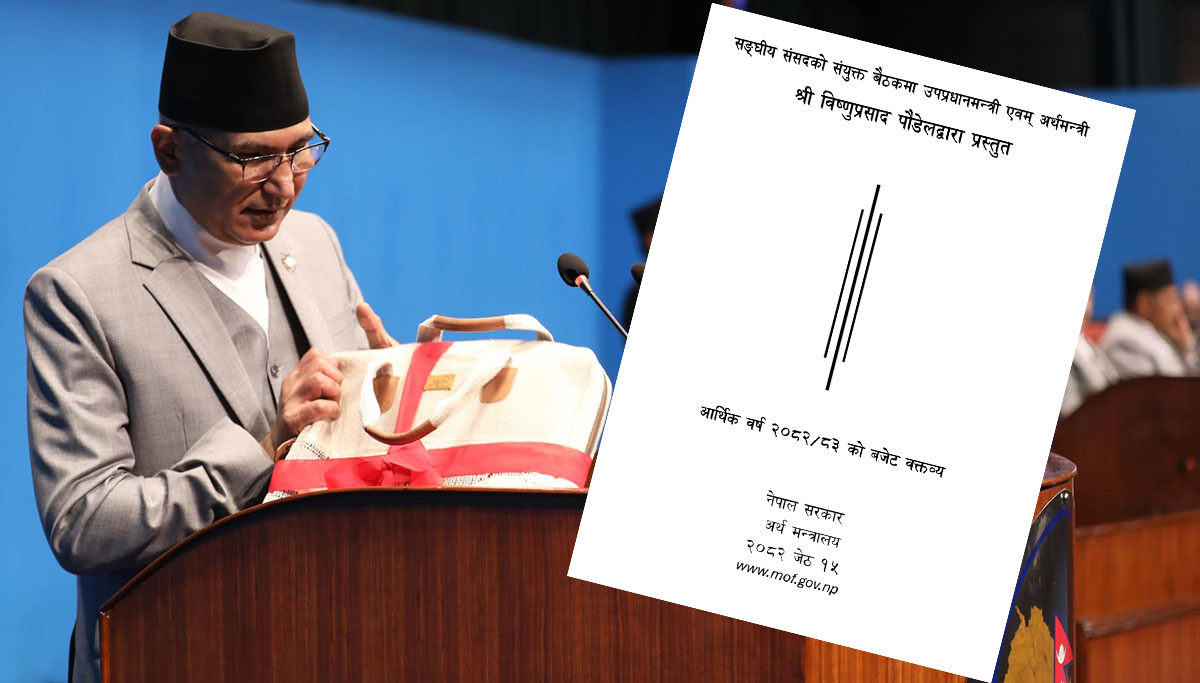
Financial Sector Reform Budget 2082/2083 in Nepal
Strengthening Regulatory Institutions and Capital Flow
The capacity of financial regulatory bodies will be enhanced. Measures will be taken to improve capital flow and access to credit. Risk management in the financial sector will be strengthened, and institutional governance will be promoted. Policies and legal frameworks will be introduced to operate newly developed risk mitigation instruments in the financial sector.
Legislative Updates and Institutional Restructuring
Timely amendments will be made to laws related to Nepal Rastra Bank and Nepal Insurance Authority. The institutional capacity of the Securities Board will be strengthened to protect investor interests in the capital market. Nepal Stock Exchange will be restructured to enhance institutional capabilities.
Asset Management and Financial Sector Strategy
The second financial sector reform strategy will be implemented. An asset management company will be established to manage bad loans and non-banking assets of banks and financial institutions.
Business Revival and Credit Restructuring
Support will be provided for business revival by facilitating credit restructuring, additional working capital flow, and interest penalty relief for entrepreneurs affected by reduced demand and business contraction.
KYC Centralization and Digital Access
Arrangements will be made to allow individuals to submit KYC details once annually at a single location, linking this data to their national ID. Agencies requiring KYC data will be able to access it electronically.
Expanding Private Sector Lending and Neobank Establishment
To boost the economy, credit flow to the private sector will be expanded. Sectoral risk management will be reviewed, and credit flow for working capital will be facilitated. A neobank will be established within FY 2082/83. Access to banks and financial institutions will be expanded in remote areas to develop the rural economy. Digital, mobile, and branchless banking services will be extended.
Insurance Expansion and Risk Coverage
Property insurance coverage will be broadened to protect against natural disasters, calamities, and accidents. Insurance companies will be directed to extend their reach to the rural level. Cybersecurity insurance services will be introduced. Reinsurance arrangements will be made to manage potential risks of deposit and loan protection funds.
Green Bond and Local Currency Bond Framework
In line with the green taxonomy concept, necessary policy and structural arrangements will be made to mobilize private capital through green and sustainable development bonds. Local currency-linked bonds will be issued to raise capital from international markets.
Facilitating Institutional Investment in Priority Sectors
Listed investment companies and other institutional investors in the capital market will be facilitated to invest in equity, bonds, and other securities of nationally prioritized industries. Legal provisions will be made to allow Employee Provident Fund, Citizen Investment Trust, and Social Security Fund to invest in private equity and venture capital.
Secondary Market Access and NRN Participation
A secondary market for government securities will be launched. Non-Resident Nepalis will be permitted to trade in the secondary market.
Unified Interest Subsidy Mechanism
A unified framework for interest subsidies on concessional loans will be implemented to increase production, employment, and self-employment in targeted sectors.
Microfinance Reform and Borrower Relief
Institutional and internal control systems of microfinance institutions will be improved. Concessional interest rate loans will be facilitated to support the revival of distressed microfinance borrowers.
Foreign Exchange Risk Hedging
Provisions will be made to operate hedging services for managing foreign exchange risks and attracting foreign investment.
Credit Transaction Law and Electronic Payments
A new law on credit transactions will be drafted. Timely amendments will be made to the Damashaahi Act. Remittance inflows through banking channels will be encouraged, along with investments in productive sectors. All payments from public institutions will be transitioned to electronic systems.
Confiscation of Illicit and Virtual Assets
Arrangements will be made to confiscate and deposit in national reserves any criminal assets, including virtual currencies such as crypto and illegal foreign currencies. Processes related to freezing, controlling, and confiscating criminal assets will be made more effective.



